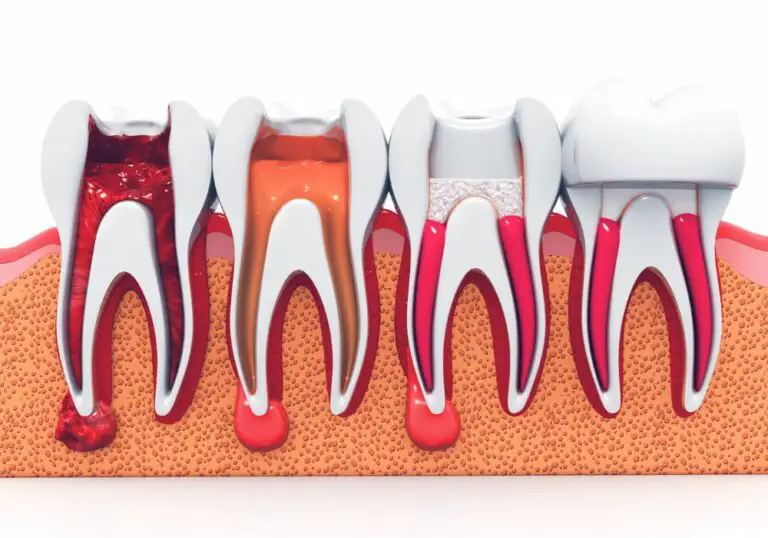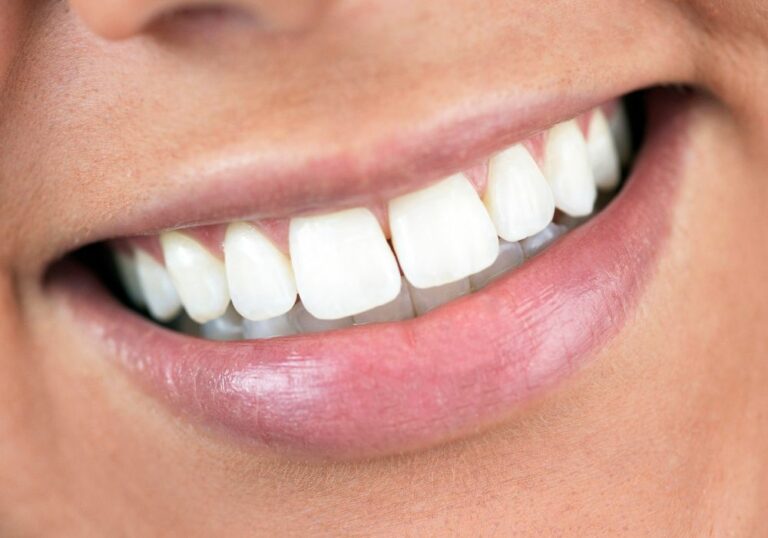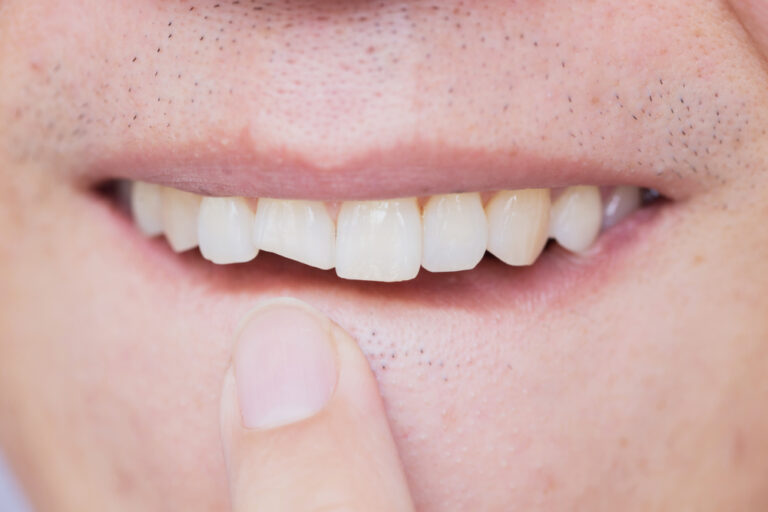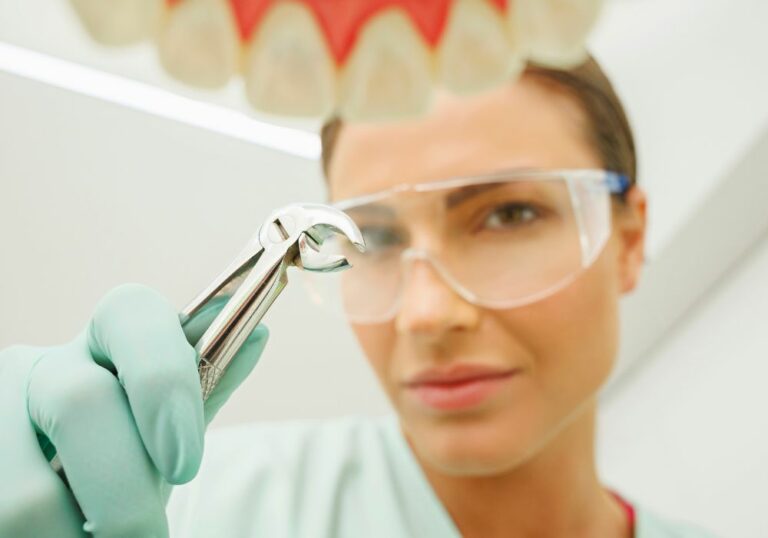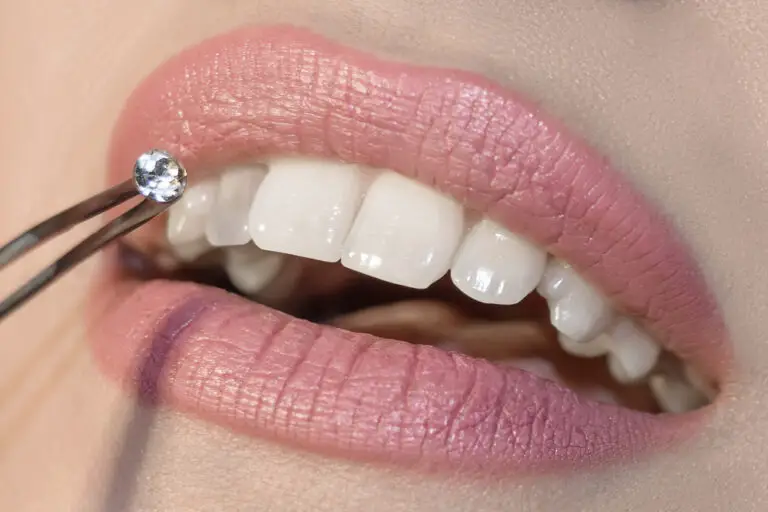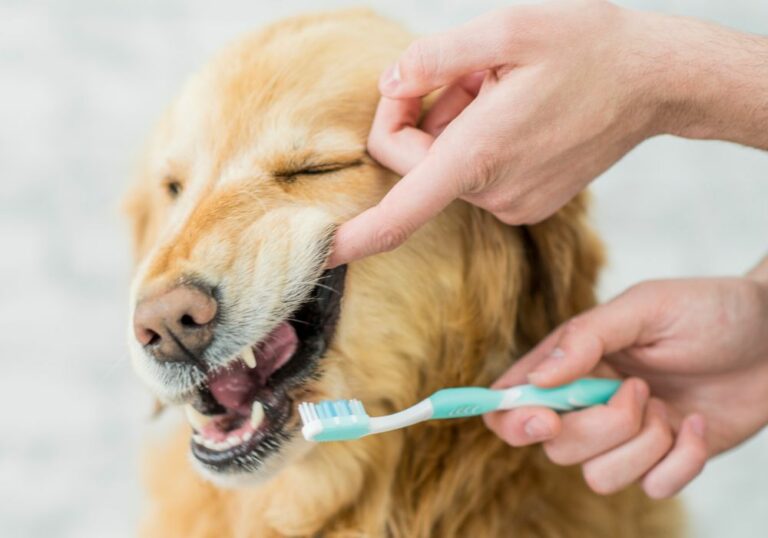If you have no teeth, it’s important to take good care of your gums to prevent gum disease and other oral health problems. But how do you clean your gums without teeth? Fortunately, there are several simple steps you can take to maintain healthy gums.
One of the most important things you can do is to remove your dentures at night and give your gums a chance to rest. This can help prevent irritation and sores, which can lead to gum disease. You should also make sure to clean your dentures thoroughly and soak them in water or a cleaning solution overnight. In addition, you can gently brush your gums and tongue with a soft toothbrush twice a day to remove any food debris and bacteria. Drinking water or rinsing your mouth frequently can also help keep your mouth moist and healthy.
Another important step is to use an antiseptic mouthwash to help prevent the buildup of plaque on your gums and teeth. Be sure to follow the instructions on the label and only use the mouthwash as directed by your doctor or pharmacist. Finally, it’s important to see your dentist regularly for checkups and cleanings. Your dentist can help you maintain healthy gums and catch any potential problems early on. By taking these simple steps, you can keep your gums healthy and prevent oral health problems.
Understanding Gum Health
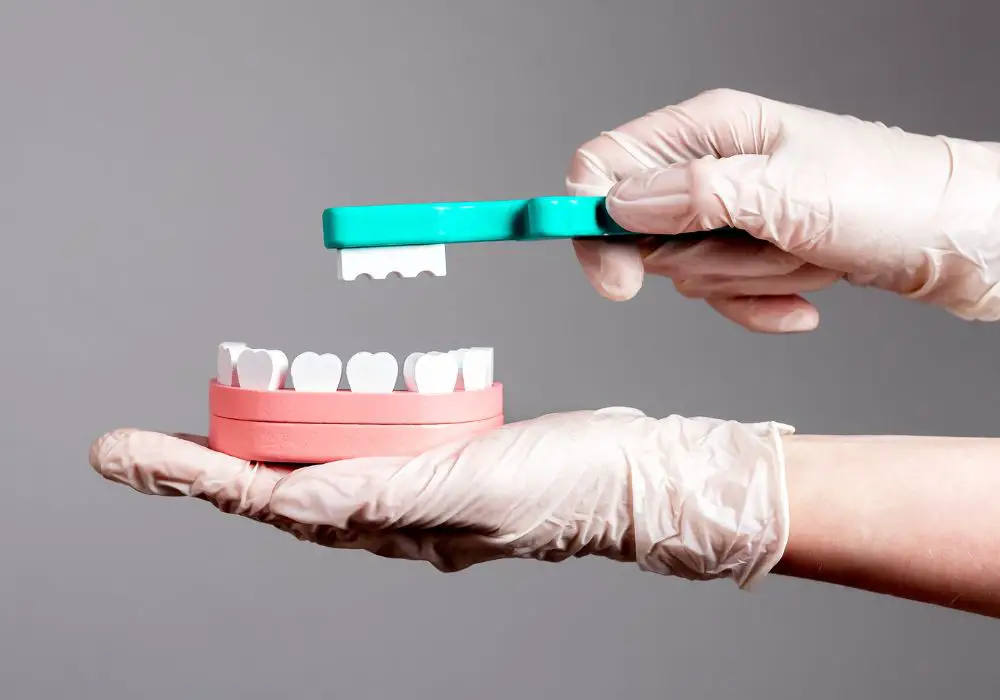
Even if you don’t have teeth, it’s still important to maintain healthy gums. Your gums provide a protective barrier for your mouth and help keep your jawbone strong. Neglecting your gum health can lead to gum disease, which can cause pain, inflammation, and even tooth loss.
When you have no teeth, your gums may be more susceptible to damage and irritation. This is because there are no teeth to help stimulate blood flow and promote healthy gum tissue. However, there are still steps you can take to care for your gums and prevent gum disease.
One important aspect of gum health is maintaining good oral hygiene. This includes brushing your gums regularly with a soft-bristled brush and using an antiseptic mouthwash to kill bacteria. You can also use a water flosser to flush out any food particles or debris that may be stuck in your gums.
It’s also important to visit your dentist regularly for checkups and cleanings. Your dentist can help monitor your gum health and provide treatments to prevent or treat gum disease. Additionally, they may recommend a denture cleaner to help keep your dentures clean and free of bacteria.
Finally, following a healthy diet can also contribute to good gum health. Eating foods rich in vitamin C, such as citrus fruits and leafy greens, can help promote healthy gum tissue. Avoiding sugary and starchy foods can also help prevent the buildup of plaque and bacteria in your mouth.
Overall, taking care of your gums is an important part of maintaining good oral health, even if you have no teeth. By following these tips and working with your dentist, you can help keep your gums healthy and prevent gum disease.
Why Cleaning Gums is Important
Taking care of your gums is essential for maintaining overall oral health, even if you don’t have any teeth. Here are a few reasons why cleaning your gums is important:
Prevention of Gum Disease
Gum disease, also known as periodontal disease, is a common condition that affects the gums and can lead to tooth loss. When plaque, a sticky film of bacteria, builds up on your teeth and gums, it can cause inflammation and infection. This can lead to the breakdown of the gum tissue and bone that support your teeth, eventually causing them to become loose and fall out.
Regularly cleaning your gums can help prevent gum disease by removing plaque and bacteria that can cause inflammation and infection. Even if you don’t have any teeth, it’s important to clean your gums to prevent gum disease and maintain good oral health.
Maintaining Oral Hygiene
Cleaning your gums is also important for maintaining overall oral hygiene. When you clean your gums, you remove bacteria and food particles that can cause bad breath and other oral health issues. Additionally, cleaning your gums can help stimulate blood flow to the area, which can promote healing and keep your gums healthy.
To clean your gums, you can use a soft-bristled brush or a clean, damp cloth. Gently brush or rub your gums in a circular motion, being careful not to apply too much pressure. You can also use a therapeutic mouthwash to help kill bacteria and freshen your breath.
In summary, cleaning your gums is an essential part of maintaining good oral health, even if you don’t have any teeth. By preventing gum disease and maintaining overall oral hygiene, you can keep your gums healthy and promote overall wellness.
Methods to Clean Gums Without Teeth
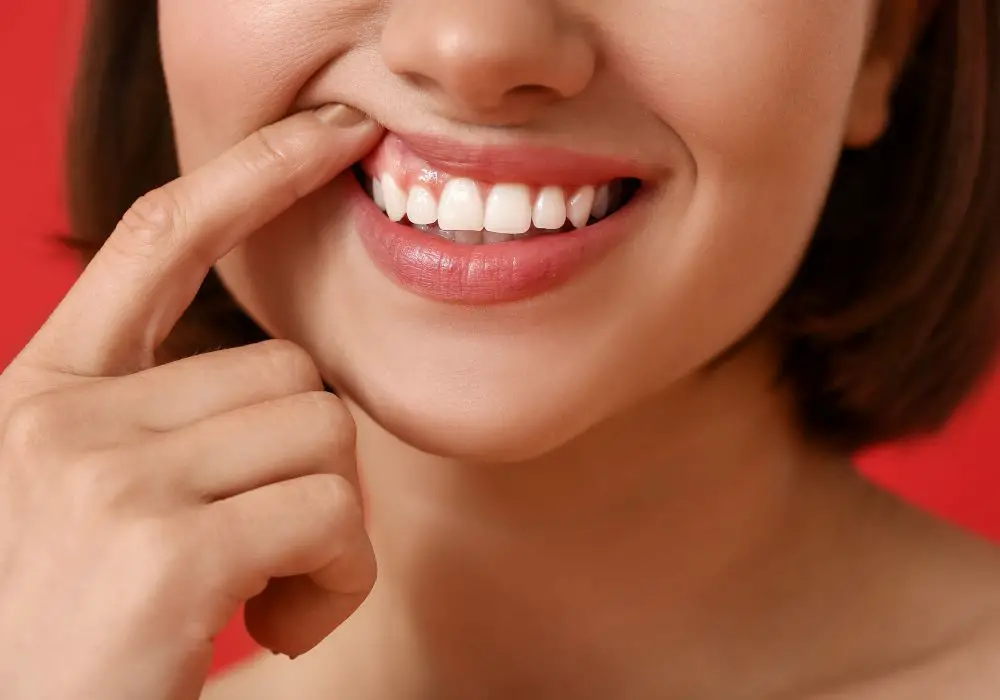
Maintaining good oral hygiene is essential even if you have no teeth. Proper gum care can help prevent gum disease and other oral health issues. Here are some methods to clean your gums without teeth:
Using Mouthwash
Mouthwash can help kill bacteria and freshen your breath. To use mouthwash, swish the liquid around in your mouth for 30 seconds and then spit it out. You can use therapeutic mouthwash to help reduce inflammation and fight gum disease. However, you should avoid using mouthwash that contains alcohol because it can dry out your mouth.
Gum Massage
Gum massage can help improve blood flow and stimulate your gums. To massage your gums, use a soft-bristled brush or your fingers and gently massage your gums in a circular motion. You can also use a rubber tip gum stimulator to massage your gums.
Saline Rinse
A saline rinse can help reduce inflammation and promote healing. To make a saline rinse, mix a teaspoon of salt with a cup of warm water and stir until the salt dissolves. Rinse your mouth with the solution for 30 seconds and then spit it out. You can do this several times a day to help keep your gums clean and healthy.
Remember, even if you have no teeth, it’s important to visit your dentist regularly for checkups and cleanings. Your dentist can help you maintain good oral health and detect any potential problems early on.
Seeking Professional Help
If you have no teeth, it is still essential to see a dentist regularly. Regular dental checkups are important to maintain healthy gums and detect any potential problems early.
Regular Dental Checkups
During your dental checkup, the dentist will examine your gums, tongue, and other soft tissues in your mouth. They will also check for any signs of oral cancer, gum disease, or other dental issues.
It is recommended to visit your dentist at least once every six months. However, your dentist may recommend more frequent visits based on your individual needs.
Deep Cleaning Procedures
If you have gum disease, your dentist may recommend a deep cleaning procedure. This is also known as scaling and root planing. During this procedure, the dentist will remove plaque and tartar from your teeth and gums. They will also smooth out any rough spots on the roots of your teeth to help prevent bacteria from accumulating.
Deep cleaning procedures may be uncomfortable, but they are essential to prevent further damage to your gums and teeth. Your dentist may also recommend antibiotics or other medications to help fight infection and promote healing.
In summary, even if you have no teeth, it is still important to see a dentist regularly for checkups and deep cleaning procedures if necessary. This will help maintain healthy gums and prevent potential dental problems.
Maintaining Gum Health Post Cleaning
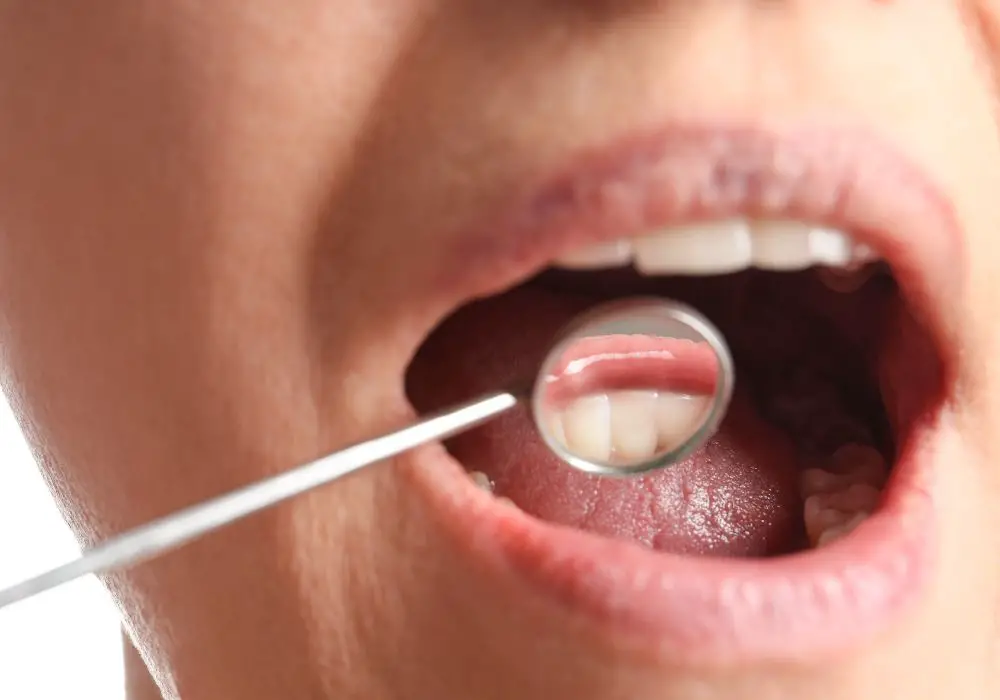
After cleaning your gums, it is essential to maintain their health. Here are some ways to keep your gums healthy:
Healthy Diet
A healthy diet plays a crucial role in maintaining gum health. Include foods that are rich in vitamins and minerals, such as fruits, vegetables, dairy products, and lean protein. These foods help to strengthen your teeth and gums, preventing gum disease.
Foods that are high in sugar and carbohydrates should be avoided as they promote the growth of harmful bacteria in your mouth, leading to gum disease. Limit your intake of sugary drinks, candy, and other sweets.
Avoiding Harmful Substances
Smoking and tobacco use are harmful to your oral health. They increase your risk of developing gum disease, tooth decay, and oral cancer. Quitting smoking and tobacco use can improve your overall health and reduce your risk of developing oral health problems.
Alcohol consumption can also have a negative impact on your oral health. It can cause dry mouth, which increases your risk of developing gum disease and tooth decay. Limit your alcohol intake to maintain healthy gums.
In conclusion, maintaining gum health post-cleaning is essential to prevent gum disease and other oral health problems. A healthy diet and avoiding harmful substances are two ways to keep your gums healthy.
Frequently Asked Questions
What are some ways to clean your gums if you have no teeth?
If you have no teeth, you can still clean your gums using a soft toothbrush or a damp cloth. Gently brushing or massaging your gums twice a day can help remove food debris and bacteria. You can also use a water flosser or an oral irrigator to clean between your gums and teeth.
Is there a specific mouthwash that is best for cleaning gums without teeth?
There is no specific mouthwash that is best for cleaning gums without teeth. However, you can use an alcohol-free mouthwash or a saltwater rinse to help keep your gums healthy and clean.
How can you prevent gum disease when you have no teeth?
To prevent gum disease when you have no teeth, it is important to maintain good oral hygiene habits. This includes brushing your gums twice a day, using a water flosser or an oral irrigator, and using a mouthwash or saltwater rinse. You should also visit your dentist regularly for check-ups and cleanings.
What foods are recommended for seniors with no teeth?
Seniors with no teeth should eat a well-balanced diet that includes soft, easy-to-chew foods such as cooked vegetables, fruits, and lean proteins. Avoid sticky, sugary, or hard foods that can damage your gums or dentures.
Can your gums still get infected if you have no teeth?
Yes, your gums can still get infected if you have no teeth. Gum disease can occur when bacteria and plaque build up on your gums, causing inflammation and infection. This can lead to gum recession, bone loss, and other oral health problems.
Are there any special tools or brushes for cleaning gums without teeth?
There are special tools and brushes designed for cleaning gums without teeth, such as gum stimulators, soft-bristled toothbrushes, and rubber-tipped picks. You can also use a water flosser or an oral irrigator to clean between your gums and teeth. Consult your dentist or dental hygienist for recommendations on what tools or brushes may be best for you.

